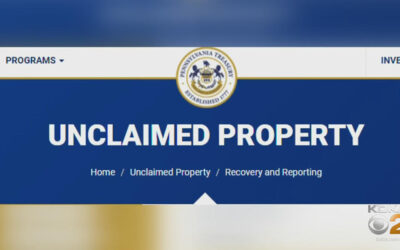Are you stuck in a timeshare contract and want to break free without breaking the bank? In this guide, we’ll walk you through 15 steps on how to cancel timeshare contract for free. Whether you’re dealing with buyer’s remorse or financial constraints, these steps will provide you with valuable insights and strategies to pursue cancellation without incurring additional costs.
15 Steps on How to Cancel Timeshare Contract for Free:
| Step | Description |
|---|---|
| 1 | Review your contract and understand its cancellation clause. |
| 2 | Determine if you are still within the rescission period. |
| 3 | Keep detailed records of all communication with the company. |
| 4 | Familiarize yourself with the timeshare laws in your state. |
| 5 | Contact the timeshare company to express your desire to cancel. |
| 6 | Consider consulting an attorney specializing in timeshares. |
| 7 | Gather evidence if you suspect misrepresentation or fraud. |
| 8 | File a complaint with consumer protection agencies if needed. |
| 9 | Explore reputable timeshare exit companies for assistance. |
| 10 | Seek guidance from consumer advocacy organizations. |
| 11 | Engage in mediation services to resolve disputes. |
| 12 | Investigate timeshare transfer or resale options. |
| 13 | Beware of timeshare exit scams and fraudulent companies. |
| 14 | Monitor your credit report during the cancellation process. |
| 15 | Stay persistent, informed, and proactive throughout the journey. |
Can You Really Cancel Timeshare Contract for “Free”?
Cancellation of a timeshare contract for free can be challenging but is possible under certain circumstances. Many timeshare contracts have a rescission period. Typically ranging from a few days to a couple of weeks, during which you can cancel without penalties. However, once this period expires, canceling a timeshare contract without any associated costs becomes more difficult.
While it’s true that some individuals have successfully canceled their timeshare contracts without incurring additional fees, it often requires a combination of careful research, negotiation, and potential legal assistance. It’s important to be cautious of scams that promise guaranteed free cancellations, as they may not deliver on their promises.

In some cases, utilizing timeshare exit companies or seeking legal advice from attorneys who specialize in timeshare cancellations may incur costs. These options often charge fees for their services. Therefore, it’s crucial to thoroughly research and understand the terms and costs involved before engaging with any company or attorney.
Ultimately, while it may be challenging to cancel a timeshare contract completely free of charge, exploring the rescission period and pursuing legitimate avenues can increase your chances of achieving cancellation without incurring substantial expenses.
Here are the 15 Steps on How to Cancel Timeshare Contract for Free:
Step 1: Review Your Contract
Take some time to thoroughly read your timeshare contract. Pay close attention to the cancellation clause, as it may outline specific terms and conditions for canceling your agreement. Understanding your rights and obligations is crucial in navigating the cancellation process.
Step 2: Determine Rescission Period
Check your contract for a rescission period, which is a limited timeframe during which you can cancel your timeshare contract without penalty. Typically, this period ranges from a few days to a couple of weeks after signing the agreement. Act quickly if you are still within the rescission period.
Read More: How Hard Is It to Sell a Timeshare? Exploring the Realities
Step 3: Document Everything
Maintain a record of all communications with the timeshare company, including phone calls, emails, and written correspondence. Documenting interactions and important details will help support your case during the cancellation process.
Step 4: Understand State Laws
Familiarize yourself with the timeshare laws specific to your state. Some states have laws that provide additional consumer protections and rights when it comes to canceling timeshare contracts. Knowing your state’s regulations can be advantageous in pursuing a successful cancellation.
Step 5: Contact the Timeshare Company
Reach out to the timeshare company’s customer service department to express your desire to cancel the contract. Be polite but firm, and make it clear that you want to terminate your agreement. Request a confirmation of your cancellation request in writing.
Step 6: Consult an Attorney
Consider seeking legal advice from an attorney specializing in timeshare cancellations. They can guide you through the legal process, review your contract, and help you understand the best course of action based on your specific circumstances. Look for attorneys experienced in handling timeshare cancellations.
Step 7: Investigate Misrepresentation
If you believe you were misled or deceived during the timeshare sales presentation, gather evidence to support your claim. Instances of fraud, misrepresentation, or violations of consumer protection laws can strengthen your case for cancellation.

Step 8: File a Complaint
If the timeshare company is unresponsive or unwilling to cooperate, file a complaint with relevant consumer protection agencies, such as the Federal Trade Commission (FTC) or the Attorney General’s office in your state. These agencies can intervene on your behalf and help resolve the issue.
Step 9: Utilize Timeshare Exit Companies
Explore reputable timeshare exit companies that specialize in canceling timeshare contracts. While some charge a fee for their services, others offer free consultations and work on a contingency basis, only charging if they successfully cancel your contract.
Step 10: Seek Assistance from Consumer Advocacy Organizations
Contact consumer advocacy organizations, such as the Better Business Bureau (BBB), to seek guidance on canceling your timeshare contract. They can provide valuable resources, mediation services, and help you navigate the cancellation process effectively.
Step 11: Engage in Mediation
In some cases, mediation can be an effective way to resolve disputes with the timeshare company. Engage in mediation services provided by organizations specializing in timeshare dispute resolution. They can facilitate negotiations and potentially secure a cancellation agreement.
Step 12: Explore Transfer or Resale Options
Investigate legitimate timeshare transfer or resale companies that can assist you in transferring or selling your timeshare. While this may not guarantee cancellation, it can alleviate the financial burden associated with the contract.
Step 13: Be Wary of Timeshare Exit Scams
Beware of fraudulent companies that prey on desperate timeshare owners. Avoid upfront fees, unsolicited offers, and promises of guaranteed cancellation. Research any company thoroughly before engaging their services.
Step 14: Monitor Your Credit Report
During the cancellation process, it’s important to keep an eye on your credit report. Ensure that the timeshare company does not report any negative information that could harm your credit score. Dispute any inaccuracies immediately.
Step 15: Stay Persistent and Informed
Persistence is key when canceling a timeshare contract. Stay informed about your rights, stay organized, and remain proactive throughout the process. Remember that canceling a timeshare contract can be a complex journey, but with determination, it can be achieved.
Conclusion:
Canceling a timeshare contract for free may require diligence, patience, and a thorough understanding of your legal rights. By following these 15 steps, you’ll be well-equipped to navigate the cancellation process and regain control over your financial future. Remember, it’s crucial to seek professional advice when necessary and stay persistent throughout the journey. Best of luck on your path to timeshare contract cancellation and reclaiming your peace of mind.
Mehedi Miraz is the passionate writer behind RealEstateTracer.com. With a love for writing and a fascination for the world of property, Mehedi has honed his expertise through years of dedicated research. His words breathe life into every aspect of the industry, making complex topics simple and enjoyable to explore. Armed with valuable insights, Mehedi is on a mission to share knowledge, empowering readers to navigate the real estate landscape with confidence.






